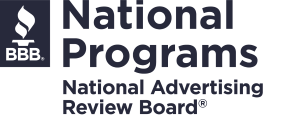
New York, NY – November 7, 2023 – A panel of the National Advertising Review Board (NARB), the appellate advertising body of BBB National Programs, recommended that T-Mobile US, Inc. modify or discontinue certain comparative phone upgrade claims, modify claims related to the availability of device deals, and modify disclosures associated with T-Mobile’s payoff and free phone offers in certain advertisements.
The advertising at issue, which appeared in television commercials, a radio ad, and on T-Mobile’s website, had been challenged by competitor AT&T Services, Inc. to the National Advertising Division (NAD). To incentivize consumers to switch to T-Mobile, the “Phone Freedom” campaign advertises that T-Mobile will pay off a customer’s phone contract and give a free 5G smartphone to customers who switch to T-Mobile’s Go5G Plus Plan.
Following NAD’s decision (Case No. 7218), T-Mobile appealed NAD’s recommendation to modify or discontinue certain of the challenged advertising claims.
Upgrade Claims
The NARB panel concluded that certain T-Mobile upgrade claims challenged by AT&T are likely confusing to consumers and do not sufficiently clarify that it compares only AT&T’s standard three-year device installment plan contract (IPC) to T-Mobile’s two-year device IPC offers. The NARB panel also found that a significant minority of reasonable consumers could take away the unsupported message that in the context of the advertisements at issue in this appeal, AT&T offers no ability to upgrade prior to the conclusion of its three-year IPC.
For these reasons, the NARB panel recommended that T-Mobile discontinue its “AT&T and Verizon rope you in with phone offers then bind you to a three-year device contract” and “no two-year upgrade for you” claims and modify its advertising to avoid conveying the unqualified message that AT&T customers are only able to upgrade their phone every three years. The panel also recommended that T-Mobile modify the claim “You’re upgrade ready a year earlier (emphasis added)” with a T-Mobile two-year device financing agreement to convey this is true relative to an AT&T standard three-year device financing agreement.
New and Existing Customers Claim
The NARB panel agreed with NAD that T-Mobile should modify the claim that Go5G Plus is “the first plan that always gives new and existing customers the same great device deals” to clearly convey that the Go5G Plus plan is the first plan that provides that future device deals will be equally available to new and existing customers.
Payoff and Free Phone Claims
T-Mobile advertises that it will pay off a consumer’s phone contract and give a free 5G smartphone to consumers who switch to T-Mobile’s Go5G Plus plan. The NARB panel considered whether T-Mobile adequately disclosed material limitations on these offers.
The NARB panel agreed with NAD that T-Mobile sufficiently disclosed in its “Locked” tv ad that its payoff offer is limited to an amount up to $650 but recommended that T-Mobile should modify its radio advertisement to disclose the $650 limitation in the payoff claim itself. With respect to T-Mobile’s website advertising, the NARB panel reversed the NAD in concluding it is not necessary to place the price cap in the website advertisement headline introducing the payoff offer.
As for the $830 price cap on T-Mobile’s free phone offer, the NARB panel agreed with NAD that, with the exception of T-Mobile’s website advertisement, the “Phone Freedom” advertising at issue in the appeal does not include the $830 price cap for its free phone claims. To avoid conveying a misleading message that the phones are free regardless of cost, the NARB panel recommended that T-Mobile clearly and conspicuously disclose the price limitation in close conjunction with its applicable free phone claims.
T-Mobile stated that “the advertising at issue in this challenge was intended to convey the many benefits of Phone Freedom, and while T-Mobile disagrees with certain aspects of the panel’s decision, it is a strong supporter of self-regulation and will take the panel’s recommendations into consideration in formulating its future advertising.”
All BBB National Programs case decision summaries can be found in the case decision library. For the full text of NAD, NARB, and CARU decisions, subscribe to the online archive.
About BBB National Programs: BBB National Programs, a non-profit organization, is the home of U.S. independent industry self-regulation, currently operating more than a dozen globally recognized programs that have been helping enhance consumer trust in business for more than 50 years. These programs provide third-party accountability and dispute resolution services that address existing and emerging industry issues, create a fairer playing field for businesses, and a better experience for consumers. BBB National Programs continues to evolve its work and grow its impact by providing business guidance and fostering best practices in arenas such as advertising, child-and-teen-directed marketing, data privacy, dispute resolution, automobile warranty, technology, and emerging areas. To learn more, visit bbbprograms.org.
About the National Advertising Review Board (NARB): The National Advertising Review Board (NARB) is the appellate body for BBB National Programs’ advertising self-regulatory programs. NARB’s panel members include 85 distinguished volunteer professionals from the national advertising industry, agencies, and public members, such as academics and former members of the public sector. NARB serves as a layer of independent industry peer review that helps engender trust and compliance in NAD, CARU, and DSSRC matters.
Contact:
Jennie Rosenberg
Media Relations
BBB National Programs
press@bbbnp.org
Tags:
Nexis Newswire, PR-Wirein, Google News, iCN Internal Distribution, Reportedtimes, IPS, Extended Distribution, Go Media, CE, Go Media2, BNN, English

